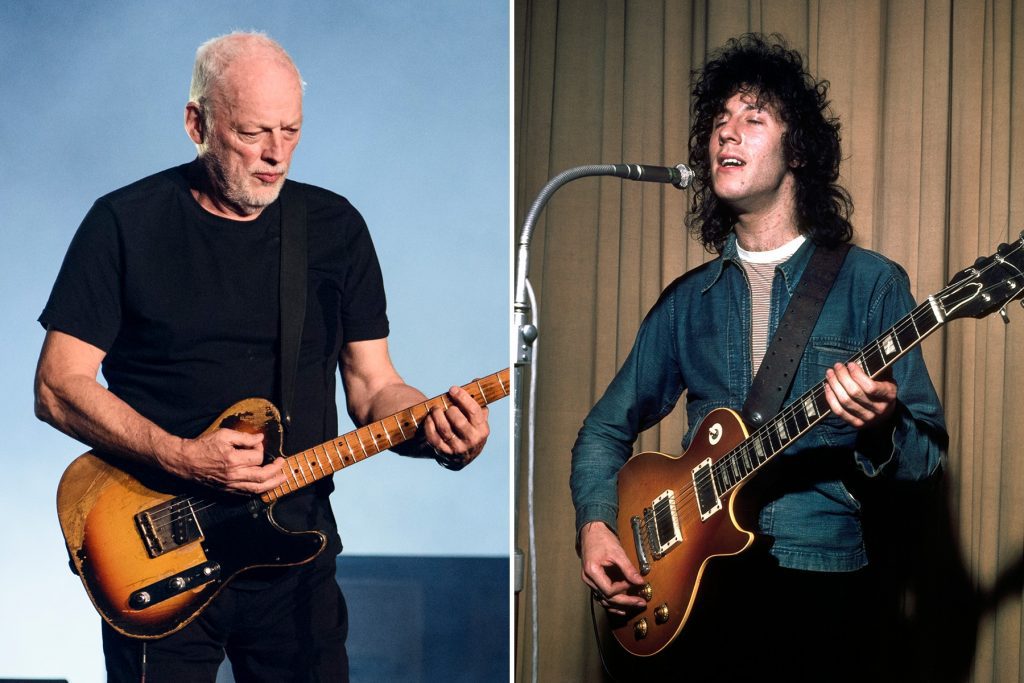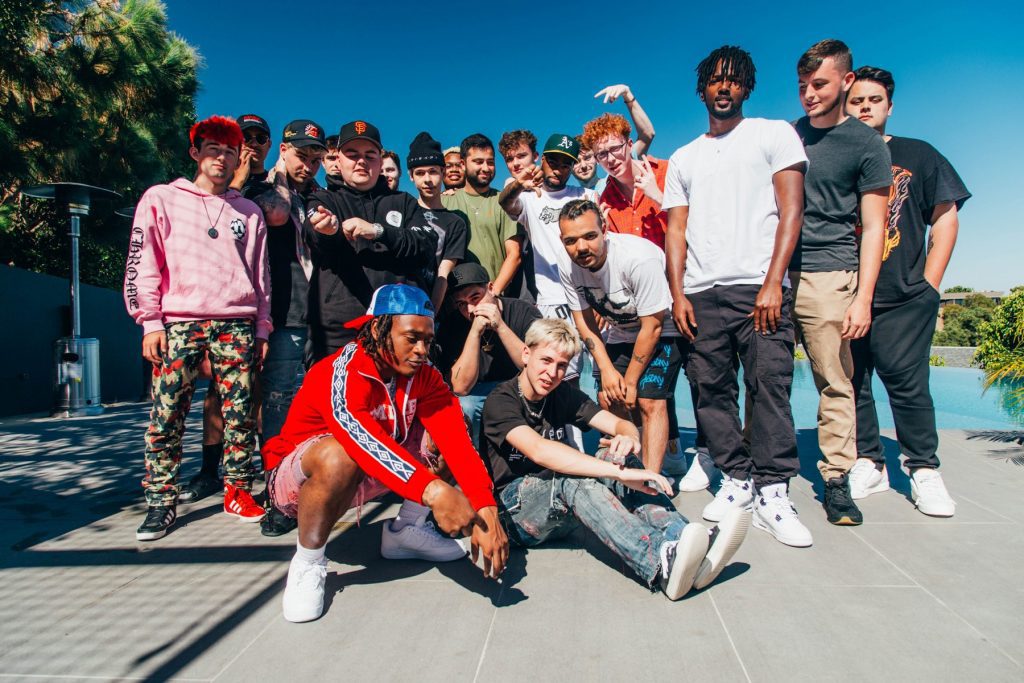
Inside Whitney Houston’s Final Days
By the early 2010s, Whitney Houston wanted to turn her life around and save her career. Despite years of mental personal struggles and drug addiction, she was still an R&B superstar with an enormous, devoted fanbase, as well as many impassioned supporters in the music industry, most prominently RCA Records president Clive Davis, who had discovered and mentored Houston. This chapter from music journalist Gerrick Kennedy’s excellent new book Didn’t We Almost Have it All: In Defense of Whitney Houston (out now via Abrams) offers a gripping, firsthand account of the glittering weekend in L.A. that would end up being the singer’s tragic final attempt at recapturing her glory.
In May 2011, Whitney Houston voluntarily checked into an outpatient treatment for drugs and alcohol. She wanted to get clean not just for herself and for her daughter Bobbi Kris, but because she wanted to work. Whitney and Debra Martin Chase had finally gotten their remake of Sparkle off the ground, a passion project of Whitney’s that was halted after the death of its original lead, the stunning, shape-shifting R&B powerhouse Aaliyah. When the original film came out in 1976, a teenage Whitney spent months going to the theater to watch it every weekend. In the new version, American Idol’s Jordin Sparks assumed the titular role, with Carmen Ejogo and Tika Sumpter playing her sisters and Whitney easing into the role of their mother, a failed singer who hit rock bottom and turned to the church. There was anticipation over Whitney’s first film role in fifteen years, which would again see her contribute new material to a soundtrack. That anticipation came with questions, though. Was she ready for any of it? Could she get it together? Clive had already communicated to the world that there would not be another album until the voice returned by going on the record with a radio host and saying just as much during a 2011 interview. But Whitney wanted the world to see her win. She also knew that as much as people loved a comeback story, there were only so many chances she was going to get.
blogherads.adq.push(function () {
blogherads
.defineSlot( ‘medrec’, ‘gpt-dsk-tab-article-inbody1-uid0’ )
.setTargeting( ‘pos’, [“mid-article”,”mid”,”in-article1″,”mid-article1″] )
.setSubAdUnitPath(“music//article//inbody1”)
.addSize([[300,250],[620,350],[2,2],[3,3],[2,4],[4,2],[640,250]])
;
});
Whitney was all in. She did the routine drug screenings required of her during the film’s production. She had fully cleaned herself up and became Whitney Houston again, but it would be short-lived. “On the last day [of filming Sparkle], she said: ‘I got an idea for our next movie,’ ” Chase recalled in Whitney. “I just don’t think she wanted to leave. Because she had purpose and people who loved her. And I can just see her going back to Alpharetta and waking up in the morning—or more likely, in the afternoon—with no reason to get out of bed and nothing on the horizon.”
In early February 2012, Whitney checked into the Beverly Hilton using her grandmother’s name for the anonymity required of a superstar (and tabloid magnet). “Elizabeth Collins” was given a presidential junior suite on the fourth floor. Whitney had just landed in Los Angeles, a small entourage in tow. It was the eve of Grammy week, and those electric days ahead of music’s biggest night were abuzz with schmoozing and bottle popping and party hopping. Whitney’s presence at Clive’s annual gala was expected. She dazzled there, the year prior, with one of those triumphant performances of hers that offered the briefest reminder of the brilliance we all had desperately hoped would stick around. It was always a night where she could be our pop queen, she could be Whitney Houston, and not have to worry about the judgment of the public—because there’s no one who wants to see the hero rise more than a roomful of artists and producers who have all weathered their share of success and failures while trying not to drown in the finicky waters of the music industry.
blogherads.adq.push(function () {
blogherads
.defineSlot( ‘medrec’, ‘gpt-dsk-tab-article-inbody2-uid1’ )
.setTargeting( ‘pos’, [“mid-article2″,”mid”,”in-article2″,”mid-article”] )
.setSubAdUnitPath(“music//article//inbody2”)
.addSize([[300,250],[300,251],[620,350],[2,4],[4,2],[3,3],[2,2]])
.setLazyLoadMultiplier(2)
;
});
At Clive’s gala, Whitney was always the belle of the ball. She was in L.A. to cut her vocal on the duet she was doing with Sparks for the Sparkle soundtrack. Recording in town gave her the chance to play the music for Clive, and she was eager to get his read on the retro soul number she’d recorded with Harvey Mason Jr. He loved the upbeat record, but he also loved Whitney enough to lecture her about the smoking habit she still hadn’t managed to kick and have an honest conversation about her taking better care of herself. Whitney saw Sparkle as the beginning of her return. And as much as Clive wanted his girl to make a comeback, she couldn’t return like she had last time. She had to be ready this time—really ready—and she’d have to prove it.

Two days before the gala, I arrived to the ballroom of the Beverly Hilton to interview Clive, Brandy, and Monica. The R&B divas had reunited to record a follow‑up duet to their 1998 smash “The Boy Is Mine” and were going to perform at Clive’s gala as a way to tease a reunion that would bury the hatchet from a nineties beef born simply out of the media’s intense comparisons of them. They were two young Black girls, deeply inspired by Whitney and the church, who paved exciting lanes for themselves as R&B prodigies at a time when the genre was meshing with hip-hop. Their music defined an era, and after being savvy enough to team up and create a smoking-hot duet where they vocally sparred over a ladies’ man, the media and their fanbases wanted a cat fight in real life as the record became a megasmash. Brandy and Monica worshipped the gospel of Whitney, and I worshipped the gospel of Brandy and Monica, so I basically levitated into the ballroom off the fumes of my own excitement as the band set up for rehearsal. Their teenage peaks were in the past, and I was one of the few reporters in the room who truly cared about the women onstage nervously running through “The Boy Is Mine.” The room was thick with national and international press, most of whom were there to talk to the man with the platinum ears about his legendary party. I was given the last slot of the day because I had requested (well, begged) for maximum time with Brandy and Monica. I balanced my notebook with a Flip cam to capture the first full run-through the ladies did with the entire band. As they sang, there was a chorus of gasps from the back of the room.
blogherads.adq.push(function () {
blogherads
.defineSlot( ‘medrec’, ‘gpt-dsk-tab-inbodyX-uid2’ )
.setTargeting( ‘pos’, [“mid”,”mid-articleX”,”in-articleX”,”mid-article”] )
.setSubAdUnitPath(“music//article//inbodyX”)
.addSize([[300,250],[300,251],[3,3],[620,350],[2,2]])
.setLazyLoadMultiplier(2)
;
});
From the corner of my eye I caught the figure of a woman shuffling toward the front of the stage. It was Whitney. She was not the Whitney who first mesmerized me in her music videos or the Whitney who captivated me in The Bodyguard and Waiting to Exhale and The Preacher’s Wife or the Whitney I had seen bow to thunderous applause just two years prior. The woman before me was unfamiliar. She was visibly intoxicated, her clothes disheveled, and her hair soaking wet from the pool. But her face was plastered with that wide, familiar smile of hers. So radiant and warm. It’s the smile I’d seen a million times by then. The discomfort growing in my stomach as chatter took over the ballroom was reassured by that smile. I was arm’s length from these women who had meant so much to me and my love of R&B and pop music, but before me was a woman who appeared so lost in her addiction that she didn’t even have the frame of mind to reconsider showing up to a room crowded with news crews or the ability to see how she was being received by a room of people. Whitney had presented herself on a silver platter at a time when social media had become our primary source of consuming celebrity news, and it felt like a Tweet was about to go live at any moment. No one in the room bothered to mask their whispers as Whitney flailed her arms frenetically while speaking to Monica or shuffling across the stage to talk to Brandy and hug Ricky Minor (he’d been her musical director for ages) as they attempted to run through their performance.
When Whitney returned to the ballroom roughly an hour later, people were sharing their bewilderment at seeing her outside doing handstands by the pool. She looked stoned, but aside from being deeply embarrassed over her appearance, no one would have thought they were witnessing someone in the last forty-eight hours of her life. Bobbi Kristina trailed behind her mother this time. She was now a gorgeous teenager who had weathered the weight of fame’s orbit and all the tabloid drama that came with having superstar parents who struggled with addiction and a toxic codependence. I took mental note that Whitney only greeted the group of Black reporters I stood with in this room full of mostly white journalists. Even though her relationship with the press, especially the Black press, could be tenuous, Whitney very well knew the difficulties Black press had when it came to representation in spaces like that. I was still learning the depths of privilege I had as a reporter for the Los Angeles Times as it related to celebrity access, but I think more than anything Whitney was genuinely enthused to see a group of young Black journalists standing together who were excited to see her and had zero judgment on display. She felt safe enough with us that she instructed Bobbi Kristina to hang tight near us as she went into a side room where Brandy, Monica, and Clive were receiving reporters.
blogherads.adq.push(function () {
blogherads
.defineSlot( ‘medrec’, ‘gpt-dsk-tab-inbodyX-uid3’ )
.setTargeting( ‘pos’, [“mid”,”mid-articleX”,”in-articleX”,”mid-article”] )
.setSubAdUnitPath(“music//article//inbodyX”)
.addSize([[300,250],[300,251],[3,3],[620,350],[2,2]])
.setLazyLoadMultiplier(2)
;
});
When I look back on that afternoon, I often think about a pair of white reporters I saw discreetly filming Whitney on their cell phones, laughing to themselves over her appearance. It’s a surreal sight to feel a room swell with embarrassment because one of the biggest pop stars on the planet showed up high and disheveled. I didn’t like the snickers or the whispers, but I couldn’t pretend to not see the obvious. Watching those two reporters slyly pointing their phones toward Whitney, knowing full well they were probably going to post their video or embed the footage in their story, filled me with shame and sadness for Whitney. She was always the story, even when she wasn’t the story. I believed the most righteous thing was to write nothing of the bad stuff. Yes, my motivation was fueled by a desire to protect Whitney, but I also felt it unfair. I was there to write about Brandy and Monica’s reunion and not the strange disruption at rehearsal. I asked my editor how to best cast her appearance in the most respectful way that got at the newsworthiness of Whitney’s unexpected presence without sounding salacious. We settled on “loose and lively.” Though I believe Whitney greeted us simply because we were young and Black and happy to see her, I also think she felt protected by us. We were not only her people; we were the only ones not gawking or giggling at her. Everyone could hear Whitney in the other room, hamming it up for the cameras, and a publicist for the Grammys very politely suggested to Bobbi Kris that she go in and grab her mother and take her away.
And she did just that. Whitney and Bobbi Kris came bouncing out of the room, smiles splashed across their faces as they skipped away toward the exit. It felt messy to ask Clive or Brandy and Monica about the afternoon’s surprise visitor, but it would have been just as strange to pretend the day hadn’t been colored by Whitney’s disruption. Everyone offered gracious sound bites into my tape recorder, and Clive indulged me by allowing me to take his place in between Brandy and Monica while he got back to prepping for the gala. A half hour later I was in the hotel lobby when I felt a tap on my shoulder. It was Whitney. “Are they still inside?” she asked. Her voice was but a gentle rasp. I nodded and told her how much I loved her, the influence she had on me and my love of music. That her existence was largely one of the reasons I ever wanted to write about pop stars. There was a sadness in her eyes that forever imprinted itself on my memory when I got the call that she was dead. Though her eyes were sad, there was that smile, so radiant and warm. Whitney gently pressed her hand into mine. “Thank you, baby. God bless you.” And then she was gone just as quickly as she had popped up.
blogherads.adq.push(function () {
blogherads
.defineSlot( ‘medrec’, ‘gpt-dsk-tab-inbodyX-uid4’ )
.setTargeting( ‘pos’, [“mid”,”mid-articleX”,”in-articleX”,”mid-article”] )
.setSubAdUnitPath(“music//article//inbodyX”)
.addSize([[300,250],[300,251],[3,3],[620,350],[2,2]])
.setLazyLoadMultiplier(2)
;
});
That night, like every night of the week leading up to the Grammys, I hopped from party to party with the close circle of friends I’d made in the industry. We were still buzzed from Mary J.’s set at a party where Belvedere flowed endlessly (they were a sponsor) when we stumbled to Tru nightclub. Kelly Price was hosting an event celebrating R&B, a genre the Grammys historically overlooked on its live broadcast, relegating it instead to the non-televised preshow that happens across the street from the big ceremony. R&B hadn’t yet entered its next wave of mainstream resurgence, so the night at Tru was largely about solidarity for a community that had seen its influence continually diminished despite its prevalence across all facets of pop music. There was a commotion when we arrived. The club had hit capacity, and the bouncer was arguing with someone in Price’s camp. Word spilled outside that Whitney had shown up, but we gave up on trying to get in and opted to load our bellies with pancakes.
Another night of revelry awaited. By morning, the blogs were lit up with headlines from the party at Tru. Whitney had unleashed a drunken tirade on former X Factor contestant Stacy Francis over Ray J and was photographed with blood dripping down her leg after falling inside. And there was a brief, impromptu performance of “Jesus Loves Me” with her friend Price that, yet again, showed how much of her voice had been lost. Deciphering what was going on between her and Ray J had replaced her Bobby drama in terms of enticing the press. There was the seventeen-year age difference and his sex tape with Kim Kardashian and Whitney’s role in his big sister Brandy’s life. Neither of them ever divulged the nature of their friendship and yet we made assumptions anyway. It was never interesting, or even groundbreaking, that a divorcée found someone to spend time with, but we judged her like we always did.
Whitney’s assistant Mary Jones laid out the gown Whitney was to wear to Clive’s gala. She had spent much of her time in L.A. partying and finding herself on the blogs. But tonight, she would be the belle of the ball. This was the one room waiting to receive her with unyielding love and appreciation for all that she was—even if that meant turning a blind eye to all that she had become. That’s not a judgment, but let’s not pretend as if part of what keeps the entertainment industrial complex churning isn’t complicity. Everyone wanted Whitney to win again. Her presence at the gala was always a moment of triumph. Clive’s golden girl had inspired so many of the young acts who grace that stage each year. Brandy and Monica were direct descendants. Without her shattering barriers, they wouldn’t have been able to become teenage dreams who ruled pop and R&B. A label wouldn’t have taken a chance on church-singer-turned-background-vocalist Kelly Price had Whitney not opened the door for Mariah, who then opened the door for Price. It’s nearly impossible not to trace any facet of contemporary pop or R&B back to Whitney.
blogherads.adq.push(function () {
blogherads
.defineSlot( ‘medrec’, ‘gpt-dsk-tab-inbodyX-uid5’ )
.setTargeting( ‘pos’, [“mid”,”mid-articleX”,”in-articleX”,”mid-article”] )
.setSubAdUnitPath(“music//article//inbodyX”)
.addSize([[300,250],[300,251],[3,3],[620,350],[2,2]])
.setLazyLoadMultiplier(2)
;
});
At Clive’s gala he would remind her—and the entire room—of just that. At the gala, all that she had accomplished would be celebrated. She would be exalted, not reminded of what she could no longer do—or what she no longer achieved—but of who she inspired and the lives she changed with her music. And so Mary laid out the gown Whitney would wear and left to run errands. When she returned, the room was dark. Water slowly seeped from the bathroom. Inside, Whitney was floating facedown in the tub. It was too late. She had gone to the same party she went to so many times before, but this time she didn’t make it out. There would be no celebratory rise. The hero had fallen, just before she was supposed to be received by an adoring audience waiting to be awed by her splendor.
I felt the air escape my lungs when I got the call from my editor. A colleague was at the Staples Center watching Rihanna rehearse when a producer was informed. Word was making its way across town the old-fashioned way as her team went into action to do the one thing they couldn’t for so long—control the story. Confirmation came by way of my phone vibrating from the reporter trusted to break the news and stave off TMZ.
Whitney was dead. It felt unfathomable yet inevitable. Her story had become too familiar, a cycle of tragedy in an industry that seemed unconcerned with breaking it. I have still never reconciled the thought of her body resting in her room—the gown she would never wear off in the distance—as Clive’s party continued. “Simply put, Whitney would have wanted the music to go on,” Clive told the audience. It was a cruel, Shakespearian ending. One of the greatest performers the world had seen was dead before her mentor’s annual gala, and the party goes on anyway as her body lies in her room upstairs. Clive was brokenhearted, certainly, but the decision to continue the party and not send everyone home is such a grotesque reminder of the old showbiz adage: The show must go on. And so the show went on as a coroner waited to remove her body from the hotel. Onstage, Clive did what he does best—he reminded the room of all that Whitney had accomplished and all she had inspired with that voice. That magical, transcendent voice that sent her flying into orbit and took us along for the ride. Whitney never got her big comeback, but she was still our hero, and so we did what we always did after we lost one of our heroes. We placed her back on her pedestal.
blogherads.adq.push(function () {
blogherads
.defineSlot( ‘medrec’, ‘gpt-dsk-tab-inbodyX-uid6’ )
.setTargeting( ‘pos’, [“mid”,”mid-articleX”,”in-articleX”,”mid-article”] )
.setSubAdUnitPath(“music//article//inbodyX”)
.addSize([[300,250],[300,251],[3,3],[620,350],[2,2]])
.setLazyLoadMultiplier(2)
;
});




